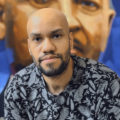University of Illinois at Urbana-Champaign
The Arts at the University of Illinois Urbana-Champaign
The academic programs in the arts at the University of Illinois are housed within the College of Fine and Applied Arts: the School of Architecture, the Dpartment of Dance, the Department of Landscape Architecture, the School of Music, the Sustainable Design Program, the Department of Theatre, and the Department of Urban and Regional Planning illinois.edu.
These programmatic offerings are expanded and enriched by the Krannert Art Museum, the Krannert Center for the Performing Arts, which hosts both academic productions and an acclaimed presenting series, the Japan House, the Siebel Center for Design, and the Humanities Research Institute.

a2ru Campus Contacts


Working in collaborative and cross-disciplinary modes, Kevin produces artworks, archives, and scholarship on such subjects as race and space, public memory, history of technology, and state violence. Recognition for his work has included grants from the National Science Foundation and National Endowment for the Humanities, presentation at conferences across Europe and North America (ISEA/ DEAF/CAA/NCA/ACM-SIGCHI), publication in edited journals and anthologies (Routledge/CCCS/Palm Press/UCLA), and invited residencies (Banff/USC-IML/Bratislava).
As an educator, administrator, and researcher, Kevin is focused on integration of practice-based, historical and theoretical approaches to learning about technological mediation. This work has included the development of several interdisciplinary project-based courses, workshops, and initiatives for students and faculty from the sciences, arts and humanities, with emphases on prototyping, reflection, and methodologies of collaboration.


Cynthia Oliver joined the Dance at Illinois faculty in August 2000. She is a former dancer with numerous companies, including the David Gordon Pick Up Co., the Bebe Miller Company, Ronald K. Brown/Evidence, and Tere O’Connor Dance. A woman of Caribbean descent, Cynthia creates work that is a mélange of dance theatre and the spoken word, incorporating textures of Caribbean performance with African and American sensibilities. Early in her career, she won a New York Dance and Performance (“Bessie”) Award and was named Outstanding Young Choreographer by the German magazine Ballet Tanz (2002). Since then, her work has gained greater national and international attention. Her most recent evening-length production, entitled Virago-Man Dem (with U of I alums Niall Noel Jones and Duane Cyrus, along with Jonathan Gonzalez and Ni’Ja Whitson), examined the nuances and complexities of contemporary black masculinities. Virago-Man Dem premiered at the 2017 Brooklyn Academy of Music’s Next Wave Festival and later toured the country. Cynthia has received numerous awards from national arts foundations to support her work, including Creative Capital (2002), Illinois Arts Council Choreography Fellowships (2004, 2014, 2017), the Rockefeller Foundation’s MAP Fund (2007, 2015), the New England Foundation’s National Dance Project (2009, 2017, 2019), awards from the National Performance Network’s Creation Fund (2009, 2012, 2017), a prestigious nomination for the Alpert Award in the Arts for dance (2009), a 2015 nomination for the Doris Duke Impact Award, and a Maggie Allesee National Center for Choreography Mellon Fellowship (2016-17). In 2011, she was selected for a nomination-only University Scholar award from the University of Illinois at Urbana-Champaign for her research and performance work. She holds a PhD in performance studies, and her scholarly work focuses on performance in the Anglophone Caribbean, particularly in the US Virgin Islands. She has published works in anthologies, exhibition booklets, the Movement Research Journal, and Women and Performance. Her single-authored book, Queen of the Virgins: Pageantry and Black Womanhood in the Caribbean, was published by the University Press of Mississippi in 2009. She teaches technique, composition, performance, post-colonial and feminist theory, and courses emphasizing the African-American and African-Caribbean influences in American performance. In 2017, she was appointed to the Office of the Vice Chancellor for Research and Innovation as an Associate Vice Chancellor for Research in the Humanities, Arts, and Related Fields. In 2020 she was named Center for Advanced Studies Professor, the highest award for faculty at Illinois.

Rachel Switzky is the inaugural director of the Siebel Center for Design. Prior to her current appointment, she has been a global design leader working with Fortune 100 companies over the past 20 years. Most recently, she served as an Executive Director at IDEO, the company who pioneered the concept of design thinking. For the last decade in this role, she helped teams imagine futures and then put them into action, focusing on digital design, emergent technologies and impact at-scale. Rachel attended the University of Illinois at Urbana-Champaign, receiving her B.F.A. and M.F.A. in Industrial Design from the College of Fine and Applied Arts.

Mike Ross became the sixth director of Krannert Center for the Performing Arts in 1997. He came to the Center from the Miller Theatre at Columbia University in New York City where he received his doctorate with distinction in music composition and where, under his direction, the Miller Theatre was recognized by The New Yorker as “the city’s hottest hotbed of innovative programming.” Deeply committed to embracing the art of the past as well as the art of our time across disciplines, aesthetic sensibilities, and cultural legacies, Mike views Krannert Center as a potent blending of classroom, laboratory, and public square. He attributes his experience as a professional classical, jazz, and rock musician and his interest in the visual and environmental arts, broader cultural history, and explorations into the nature of creativity writ large as major influences on his collaborative approach to arts administration. He has served as board chair for the Association of Performing Arts Presenters and as board president of Arts Alliance Illinois and is a founding member of 40 North, the Champaign County Arts Council. He is a recipient of the North American Performing Arts Agent and Managers Association’s Award for Excellence in Presenting the Arts and was selected by National Arts Strategies to participate alongside 100 national and international cultural leaders in its inaugural Chief Executive Leadership Initiative. Mike is an associate dean in the College of Fine and Applied Arts, has served on numerous campus committees, and chaired the cross-campus Seedbed Initiative for Transdomain Creativity, which led to the establishment of the eDREAM Institute (Emerging Digital Research and Education in Arts Media), for which he now serves as an advisor. Mike is a passionate advocate for the micro-urban Champaign-Urbana community and has served as co-chair of the 2013 Champaign County United Way Campaign.

Antoinette Burton is a feminist historian of 19th and 20th century Britain and its empire whose work has tried to bring history from below into the discipline’s broader field of vision. Her academic training and her expertise in anti-imperial history together shape her daily engagements with institutional culture and power. A former head of History at Illinois (2005-2010), she became the Director of HRI (previously IPRH) in 2015, just at the moment that it moved into the Office of the Vice Chancellor for Research and Innovation and into its new premises at the Levis Faculty Center. She has been a recipient of fellowships from the ACLS, the NEH and the John Simon Guggenheim Foundation and she is currently the Maybelle Leland Swanlund Endowed Chair.
Burton has written on topics ranging from feminism and colonialism to the relationship of empire to the nation and the world. Women, gender and sexuality have always been central to her research, much of which has been concerned with the role of Indian women in the imperial and postcolonial imagination. She was the editor of the Journal of Women’s History with Jean Allman (2004-2010) and she edits a series of primers for teaching history at Duke University Press. She’s organized collections about race, politics, mobility, postcolonialism and empire and has frequently collaborated with former Illinois colleague and leading historian of New Zealand, Tony Ballantyne.
Over the course of her twenty years at Illinois, Burton has taught courses on modern British history and imperialism, gender and colonialism, autobiography and the archive, anti-imperial history, approaches and methods and world history. Her research and teaching have always striven to center women, people of color and other “others” and to challenge the insularity of national histories from imperial ones. Her most recent publications are An ABC of Queen Victoria’s Empire (2017); A Cultural History of Western Imperialism (6 volumes, 2018); and (with Renisa Mawani), Animalia: An Anti-Imperial Bestiary for Our Times (2020). Her full CV can be found at History at lllinois.
In her capacity as Director of HRI, Burton is the Principal Investigator of a number of grants awarded by the Andrew W. Mellon Foundation, including Emerging Areas in the Humanities, The Odyssey Project, and Humanities without Walls. As PI she also oversees HRI’s Training in Digital Methods for Humanists project (funded by the campus Investment for Growth initiative) and a grant through the ACLS’ Postdoctoral Partnership Initiative (the latter based in the College of Liberal Arts and Sciences)


Patrick Earl Hammie is a visual artist—painter, sculptor, illustrator—who uses portraits and allegories to examine personal and shared Black experiences and offers stories that expand how we express notions of gender and race today. Hammie studied drawing at Coker University (2004) and received an MFA in painting from University of Connecticut (2008). His works and collaborations have been exhibited in Germany, India, South Africa, and the United States, at venues that span the California African American Museum, The Drawing Center, John Michael Kohler Arts Center, Kunstwerk Carlshütte, National Underground Railroad Freedom Center, Wausau Museum of Contemporary Art, and the Zhou B. Art Center. He was an artist-in-residence at the John Michael Kohler Art Center and the inaugural recipient of the Alice C. Cole ’42 Fellowship from Wellesley College. His works are included in public and private collections including the David C. Driskell Center (Maryland), Kinsey Institute Collections (Indiana), Kohler Company Collection (Wisconsin), JPMorgan Chase Art Collection (New York), and William Benton Museum of Art (Connecticut). He has been supported by fellowships and grants from the Joyce Foundation, Midwestern Voices and Visions, Puffin Foundation, Tanne Foundation, the states of Illinois and Connecticut, and other private foundations. Hammie currently serves as an Associate Professor and Chair of Studio Art at the University of Illinois Urbana-Champaign in the School of Art + Design.







